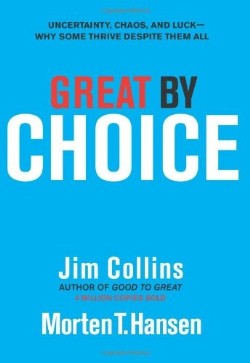God I Feel Sad
$12.99
Kids have big feelings, but none of their feelings are too big for God. In this picture book from licensed counselor Michelle Nietert and Tama Fortner, young readers will explore what it means to feel their sadness and discover how to manage their emotions in a healthy way.
Sad is a feeling that can be hard, but if we listen to it, we can learn things about ourselves. In God, I Feel Sad, kids discover that it’s okay to be sad and that God is in all things, including sadness. With simple, accessible text, sad becomes an emotion that kids don’t need to avoid and instead something they can use to grow closer to God. The bright, emotive art by Nomar Perez will draw kids in, and a note in the back provides tips and techniques parents and caregivers can use to help young children process their feelings in a beneficial way.
God, I Feel Sad teaches kids ages 4 to 8 how to:
*Identify the feeling of sadness
*See signs of sadness in others
*Recognize things that can make them feel sad
*Embrace sadness without letting it overwhelm them
*Talk to God about their feelings
God, I Feel Sad is perfect for:
*Helping young kids develop positive ways to manage and name their feelings
*Children dealing with changing emotions, new experiences, or loss
*Family read-aloud time
*Supporting good communication and mental health habits at an early age
4 in stock
SKU (ISBN): 9780310140849
ISBN10: 0310140846
Michelle Nietert | Tama Fortner | Nomar Perez
Binding: Cloth Text
Published: April 2023
Publisher: Zondervan
Related products
-
Be Kind Journal
$9.99SKU (UPC): 0612978553527Binding: OtherPublished: August 2021Publisher: Kerusso
Add to cart1 in stock
-
Drawing Pad : Available From Anchor
$4.99Games and Toys
Additional Info
This generously sized drawing pad provides a clean sheet for every creative whim. Premium white bond paper is ideal for pencils, crayons, markers, chalk, watercolor or poster paints.Add to cartin stock within 3-5 days of online purchase
-
Great By Choice
$29.99The new question
Ten years after the worldwide bestseller Good to Great, Jim Collins returns with another groundbreaking work, this time to ask: Why do some companies thrive in uncertainty, even chaos, and others do not? Based on nine years of research, buttressed by rigorous analysis and infused with engaging stories, Collins and his colleague, Morten Hansen, enumerate the principles for building a truly great enterprise in unpredictable, tumultuous, and fast-moving times.The new study
Great by Choice distinguishes itself from Collins’s prior work by its focus not just on performance, but also on the type of unstable environments faced by leaders today.With a team of more than twenty researchers, Collins and Hansen studied companies that rose to greatness-beating their industry indexes by a minimum of ten times over fifteen years-in environments characterized by big forces and rapid shifts that leaders could not predict or control. The research team then contrasted these “10X companies” to a carefully selected set of comparison companies that failed to achieve greatness in similarly extreme environments.
The new findings
The study results were full of provocative surprises. Such as:The best leaders were not more risk taking, more visionary, and more creative than the comparisons; they were more disciplined, more empirical, and more paranoid.
Innovation by itself turns out not to be the trump card in a chaotic and uncertain world; more important is the ability to scale innovation, to blend creativity with discipline.
Following the belief that leading in a “fast world” always requires “fast decisions” and “fast action” is a good way to get killed.
The great companies changed less in reaction to a radically changing world than the comparison companies.
The authors challenge conventional wisdom with thought-provoking, sticky, and supremely practical concepts. They include: 10Xers; the 20 Mile March; Fire Bullets, Then Cannonballs; Leading above the Death Line; Zoom Out, Then Zoom In; and the SMaC Recipe.Finally, in the last chapter, Collins and Hansen present their most provocative and original analysis: defining, quantifying, and studying the role of luck. The great companies and the leaders who built them were not luckier than the comparisons, but they did get a higher Return on Luck.
This book is classic Collins: contrarian, data-driven, and uplifting. He and Hansen show convincingly that, even in a chaotic and uncer
Add to cart1 in stock

 Grief Observed
Grief Observed











Reviews
There are no reviews yet.